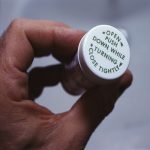
Owners whose cats have diabetes now have a new option to care for the condition in their otherwise healthy pets. The U.S. Food and Drug Administration on Thursday approved the first pill to improve control of diabetes in some cats. The drug, called Bexacat (bexagliflozin tablets), is not insulin and is not meant for cats who have the type of diabetes that requires treatment with insulin. Rather, it is what is called a sodium-glucose cotransporter 2 (SGLT2) inhibitor. The active ingredient in this pill prevents the cat’s kidneys from reabsorbing glucose into the blood. This excess glucose leaves the body through the urine, lowering blood sugar levels. As part of the approval, the FDA requires that Bexacat labels include a boxed warning about the importance of patient selection. Only certain cats should take the drug, determined through careful screening. Potential patients must be screened for kidney, liver and pancreatic disease, as well as ketoacidosis, a high level of a type of acids known as ketones in the blood. Bexacat also shouldn’t be used in cats who are being treated with insulin or in those who have previously been treated with insulin. The drug should not be started in cats who are not eating well or who are dehydrated or lethargic at diagnosis. Cats taking this medication should be monitored regularly with exams and blood tests,… read on > read on >





























-300x200.jpg)







-300x169.jpg)
